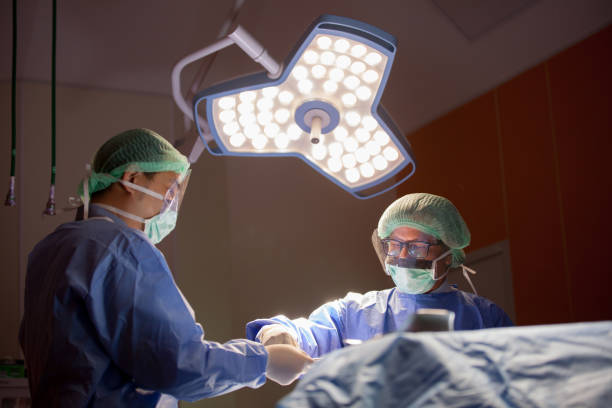General surgery

General surgery
Hernia
Hernias can occur to anyone, at any age. Some hernias can be painful and even prevent you from participating in the activities you enjoy. Dr. Vikas M Daddenavar is one among the certified surgeons specializing in hernia surgery.
He performed multiple hernia surgeries a year, setting the standard of quality as the leader among the experts for both quality care and overall cost.
Open abdominal surgeries
As part of damage control procedures in severe abdominal injuries, the open abdomen (OA) operation is a significant surgical achievement. Its use can be tailored to the benefit of patients with severe abdominal sepsis.
Hydrocele
If a hydrocele does not go away on its own, it may need to be surgically removed, which is usually done as an outpatient treatment. Hydrocelectomy (removal of a hydrocele) can be performed under general or regional anaesthesia. To remove the hydrocele, an incision is made in the scrotum or lower abdomen. If a hydrocele is discovered during surgery to treat an inguinal hernia, the surgeon may remove it even if it isn’t bothering you.
Doctors commonly perform a lateral internal sphincterotomy (LIS) operation, which includes cutting a small piece of the anal sphincter muscle to relieve spasm and improve recovery. According to studies, surgery is far more beneficial than any other medical treatment for chronic fissures.
Thyroid surgery
The surgical removal of all or part of your thyroid gland is known as a thyroidectomy. The thyroid gland, shaped like a butterfly, is positioned at the base of your neck. It secretes hormones that regulate every element of your metabolism, from heart rate to calorie burn rate.
Breast lump surgery
The surgical excision of a malignant mass in the breast is known as breast lump removal. A lumpectomy is another name for it. The procedure’s purpose is to remove the tumour as well as some healthy tissue around the tumor. The doctor removes the lump, it will help ensure that all cancer cells are completely removed.

